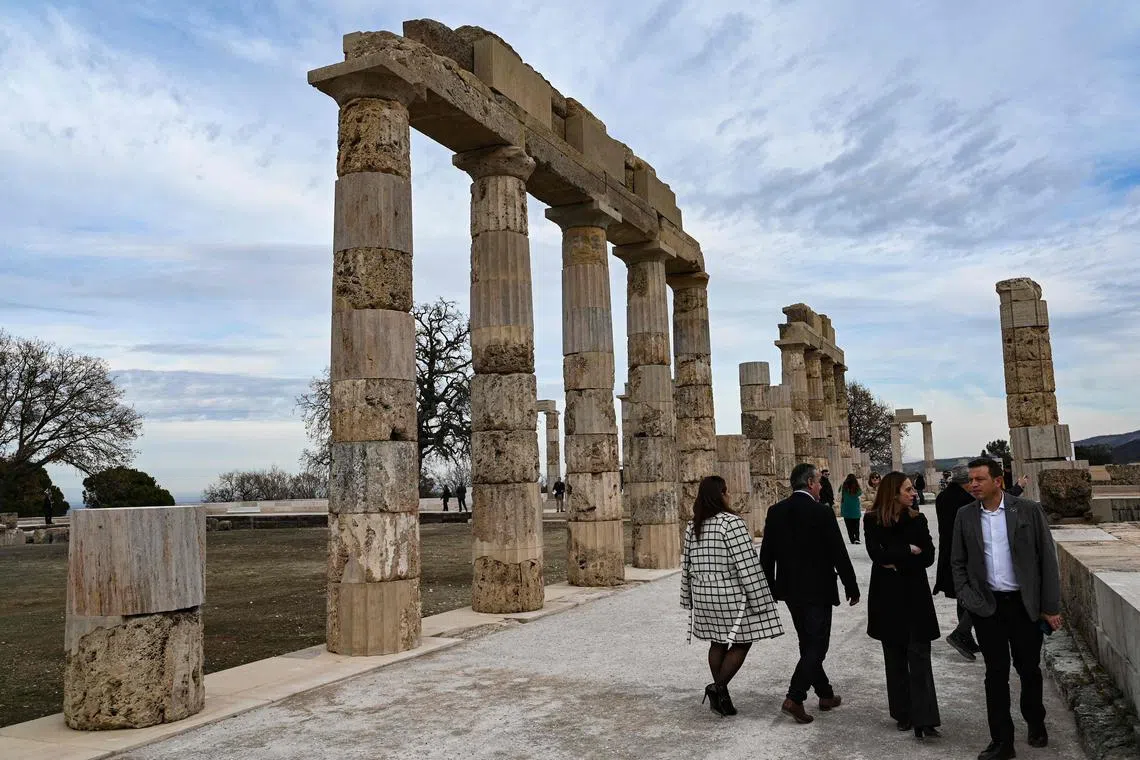Greece revives 2,300-year-old palace where Alexander the Great was crowned
Sign up now: Get ST's newsletters delivered to your inbox

Aigai was capital of the Macedonian kingdom, the dominant military power of the time.
PHOTO: AFP
VERGINA – An ancient palace where Alexander the Great was crowned king of Macedonia will reopen to the public on Jan 7 after a 16-year €20 million (S$29.1 million) renovation meant to restore its past glory.
At a ceremony on Jan 5, Greek Prime Minister Kyriakos Mitsotakis called the Palace of Aigai a “monument of global importance”.
The fourth century BC site spread over 15,000 sq m was one of the most important in classical Greece, alongside the Parthenon in Athens.
Aigai was capital of the Macedonian kingdom, the dominant military power of the time, and archaeologists say the palace was the kingdom’s spiritual centre.
Built by Philip II, the father of Alexander the Great, the tombs of Philip and other Macedonian kings are nearby.
After the assassination of his father, Alexander was crowned at the palace in 336BC before launching a military campaign that created an empire stretching into modern-day India.
The palace “has a cultural and national character, because it confirms the Greek identity of Macedonia throughout the centuries”, Mr Mitsotakis said.
The site includes the royal palace and a colonnade that surrounded the palace and the agora, where ancient Macedonians debated important matters.
It was in the courtyard, with an 8,000 capacity, that Alexander was proclaimed king.
The Romans destroyed the palace in 148BC. Excavations to uncover the site started in 1865 and continued into the 20th century.
The restoration project began in 2007 with help from the European Union. Situated near the modern-day Greek village of Vergina, the palace and nearby tombs are listed as a World Heritage Site by Unesco.
Greece has boosted investment in its many antique sites, which have become an important source of tourist revenue.
For the past three decades, it has been demanding the return of sculptures taken from the Parthenon that are in the British Museum, saying they were looted in the 19th century when Greece was under Ottoman rule. AFP


